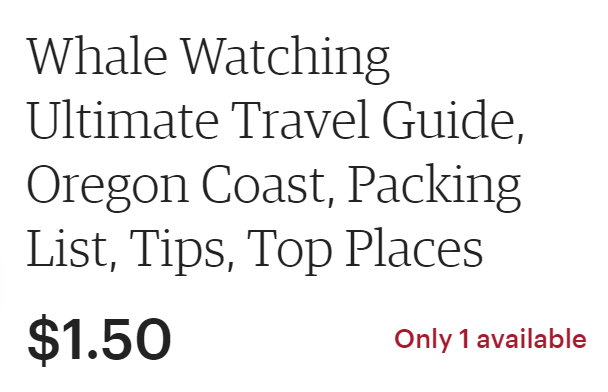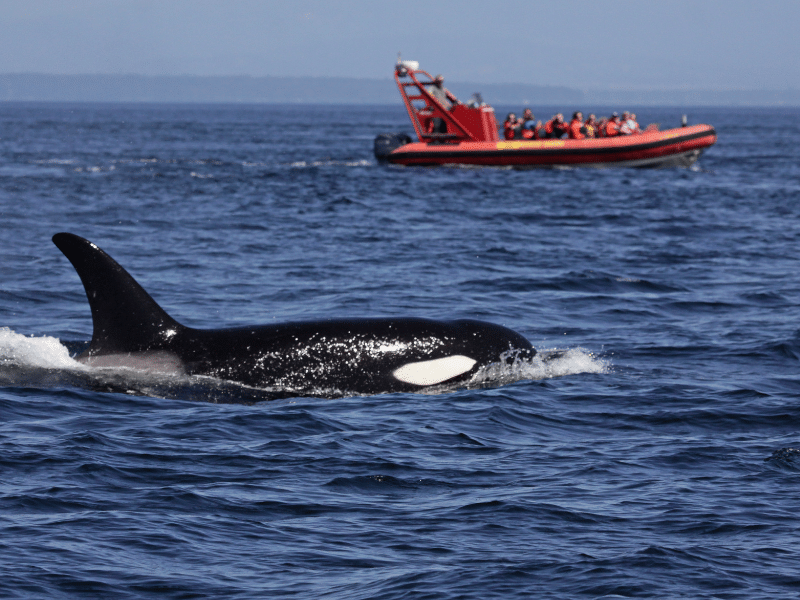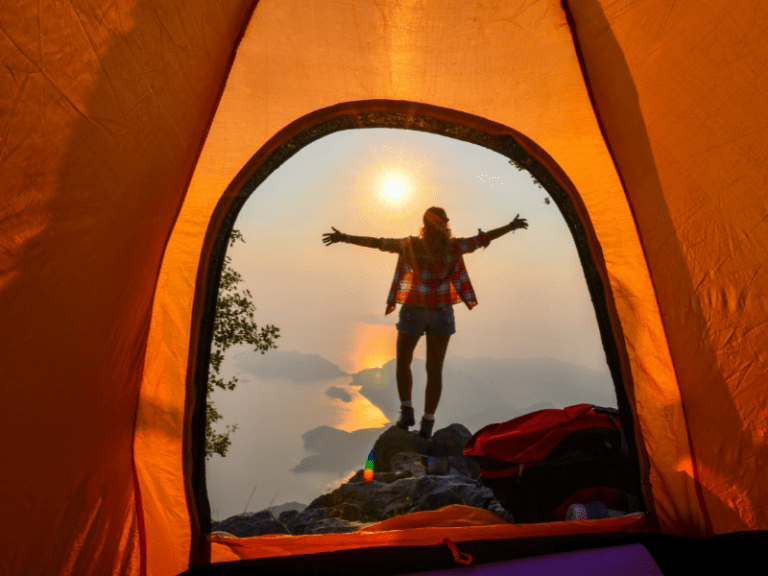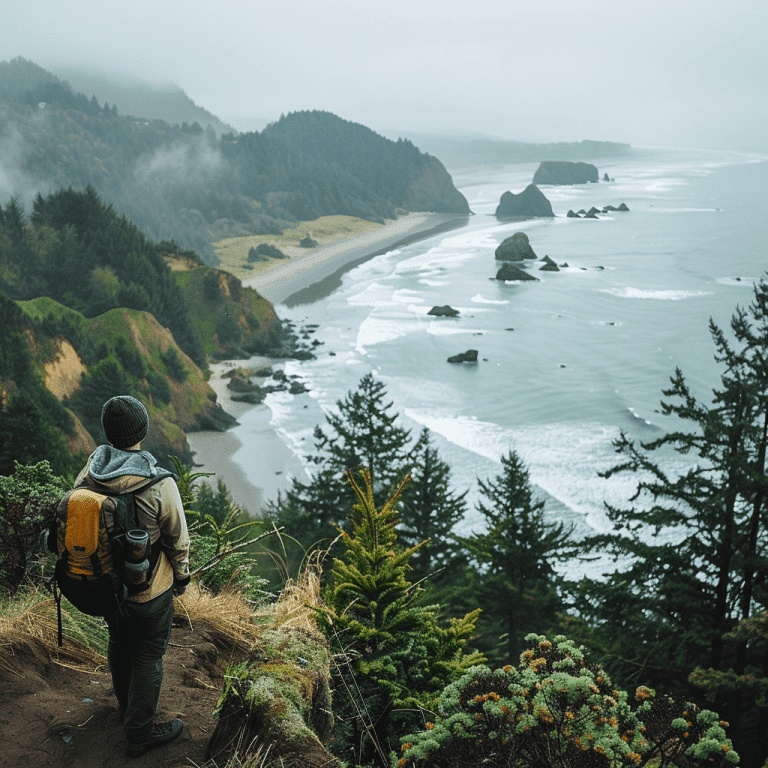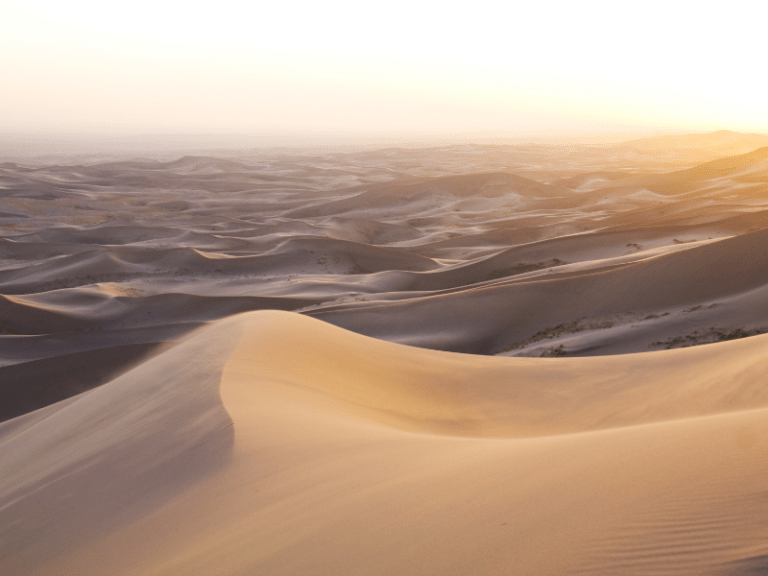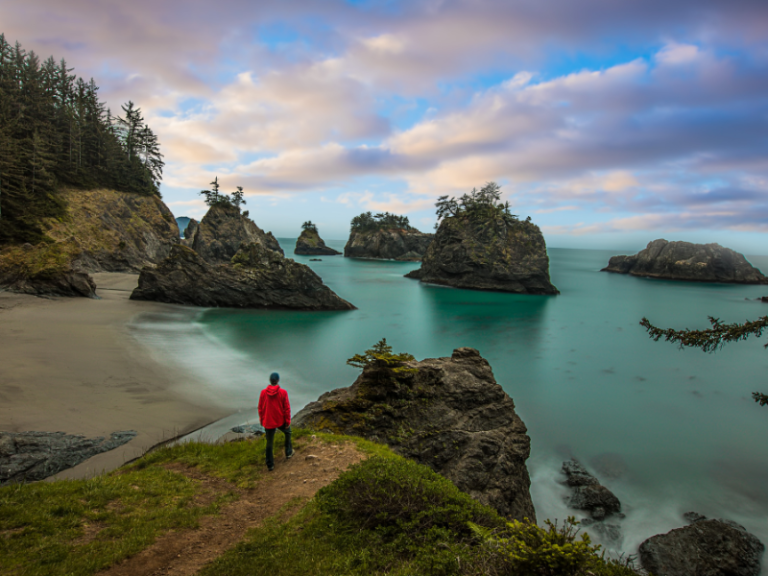Pack These 7 Items For Whale Watching on the Oregon Coast
This post may contain affiliate links. I may earn a small commission at no extra cost to you.
If you're looking to add another element to your next coastal getaway, check out whale watching on the Oregon Coast. These marine mammals can be seen in abundance during the summer months, with some viewing spots seeing up to 1000 sightings per season. In fact, the whale watching season is so popular that operators offer limited boat capacities to ensure safe passage for these graceful creatures. It's no wonder many people choose to make the coastal drive in search of these animals. Here are a few items you should pack for whale watching.
Take Binoculars with You When Whale Watching

When whale watching, binoculars are a must. Not only do binoculars help you see marine mammals more closely, but they can also help you a better look at your surroundings.
Binoculars are small, lightweight, and easily packable. Not only do binoculars help you see marine mammals more closely, but they can also help you look at your surroundings better. You can use binoculars to better look at birds, seals, and other exciting creatures you might encounter.
Taking binoculars with you can easily scout out a good view and find a spot to sit and watch the whales cruise by.
Don't Forget the Camera Gear
You've spent time peering through a pair of binoculars and watching the whales cruise by. Now it's time to get a photo!
While there are many options for purchasing a waterproof camera, most are not waterproofed to withstand the elements. As a result, a lot of the photos you've taken turn out blurry.
To prevent this, bring a waterproof camera with you. You can also add a waterproof case, as most cameras come with a case that has a small hole, adding an extra layer of waterproof protection.
If you're interested in a budget option, the GoPro is excellent, as it's both durable and waterproof. Again, make sure to add a waterproof case to ensure your camera is protected throughout your trip.
Pack a Snack and Some Water

Whales are active animals, splashing around and eating often. While you may want to wait and watch as the whales feed, make sure not to forget about yourself. Make sure to bring along snacks and some water for yourself.
If the weather is nice, you may want to take a picnic with you and find a secluded spot along the beach.
You can also pack a few extra snacks and water so that you can share them with other passengers if you're traveling on a tour boat.
Pack a Blanket
If you decide to bring a blanket along with you, make sure that it's a lightweight one that you can fold up and pack away easily.
A blanket is a great way to sit down on the beach while you wait for sealife to appear.
Watching for Sealife
Remember that whales appear year-round but are more active in the summer. While seals and sea lions are more active in the winter.
When whale watching, look for a spot in the water that has lots of seabirds gathered. When whales feast, they leave parts of the animals in the water. This attracts the birds and gives them something to eat.
Mini First Aid Kit With Included Motion Sickness Medicine

In addition to bringing a few snacks and water, it's also a good idea to pack a mini first-aid kit.
A mini first-aid kit is great to have along just in case you get cut or stung. It's a must-have if you are camping, hiking, climbing, or even on an adventure.
I like to keep mine handy and ready to go in my backpack, car, or glove box.
First Aid Kit
I recommend a good quality, small first aid kit that can be easily accessed.
I've been using the same medical kit for years. It has everything I need and works great! I restock the kit when I use something so that I will always have what I need.
The first aid kit includes:
- A small sewing kit
- A pair of tweezers
- A pair of scissors
- A pair of nail clippers
- An alcohol wipe
- Cotton balls
- Bandages
- A safety pin
- CPR Mask
- Motion Sickness Medicine
Motion Sickness Medicine
As the boat speeds along the ocean, you may get a little jostled, causing you to feel seasick.
Seasickness medicine can help to prevent this from happening, so make sure to pack one in your first aid kit.
Extra Pair of Clothes, Including Rain Gear
When going anywhere near the ocean, it is best practice to pack an extra pair of clothing for when you get sandy or wet.
An extra pair of clothing to have on hand includes:
- Socks
- Underwear
- T-shirt
- Pants
- Shoes
- Hat
- Rain Gear
Rain Gear
Rain gear is great to have to keep yourself and your belongings dry. The best rain gear to have when whale watching includes:
- Rain jacket
- Waterproof boots
- Waterproof backpack
- Waterproof phone case
- waterproof pants
Dress in Layers
Dressing in layers is another must on the Oregon Coast. The Pacific Winds are constantly blowing on the coastline, which can make for some cold weather year-round.
It is common to see someone on the beach wearing shorts, running shoes, and a jacket year-round.
You could wear a t-shirt, hoodie, and rain jacket when dressing in layers. Or you would wear a long sleeve shirt, vest, coat, and rain jacket. There are many different options. However, having things you can take off and put back on is important when dressing for the Oregon Coast.
Keep an Eye Out for Whale Watching Tours

Image Source: FreeImages
If you're looking to book a tour to see the whales, make sure to check out the offerings of tour operators in your area. In many cases, tour operators will offer a combination of whale-watching trips and other types of tours, like fishing trips.
Many companies along the coast offer these tours, such as Tradewinds, Marine Discovery Tours, and Whale Watch Tail Charters.
Many companies have been offering whale-watching excursions for over 40 years in Newport, providing unique experiences.
There are so many unique whale-watching tour companies that it can be hard to choose one to use. You can find a list of tour companies by visiting 10 Things you Need to Know Before Going Whale Watching.
Make sure to grab your Ultimate Travel Guide for whale watching before heading out.

